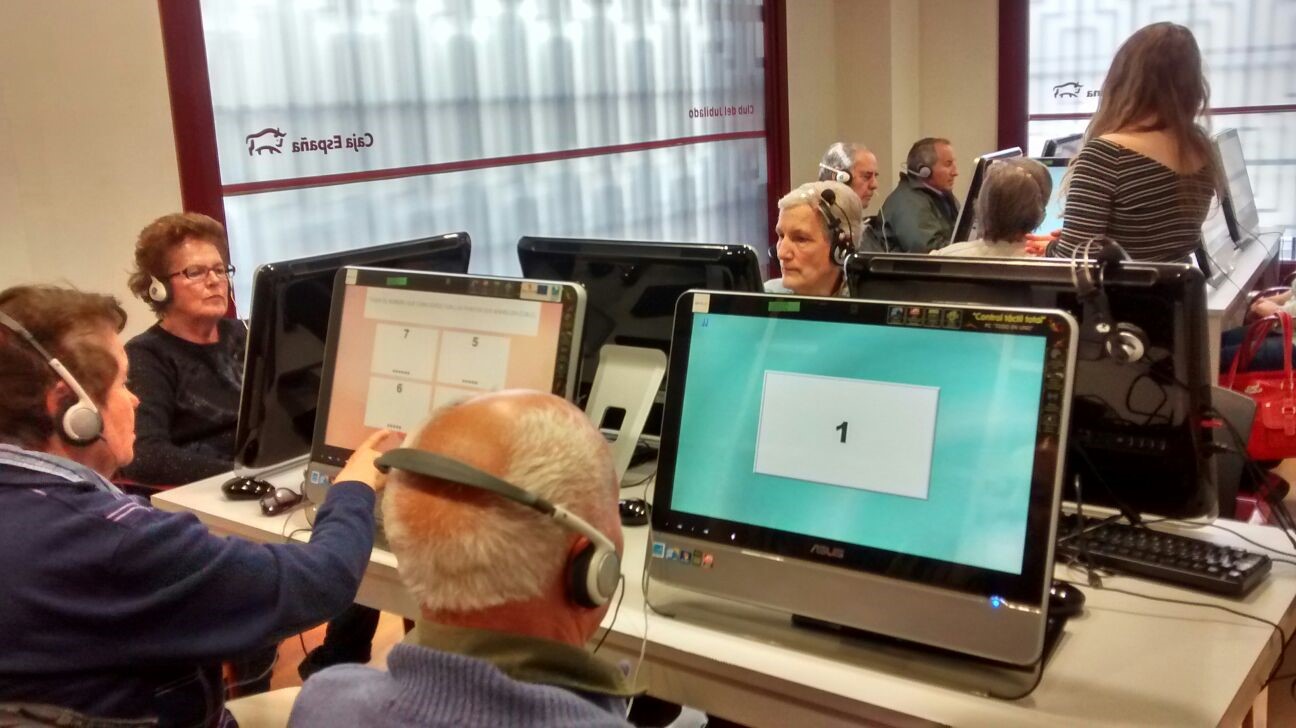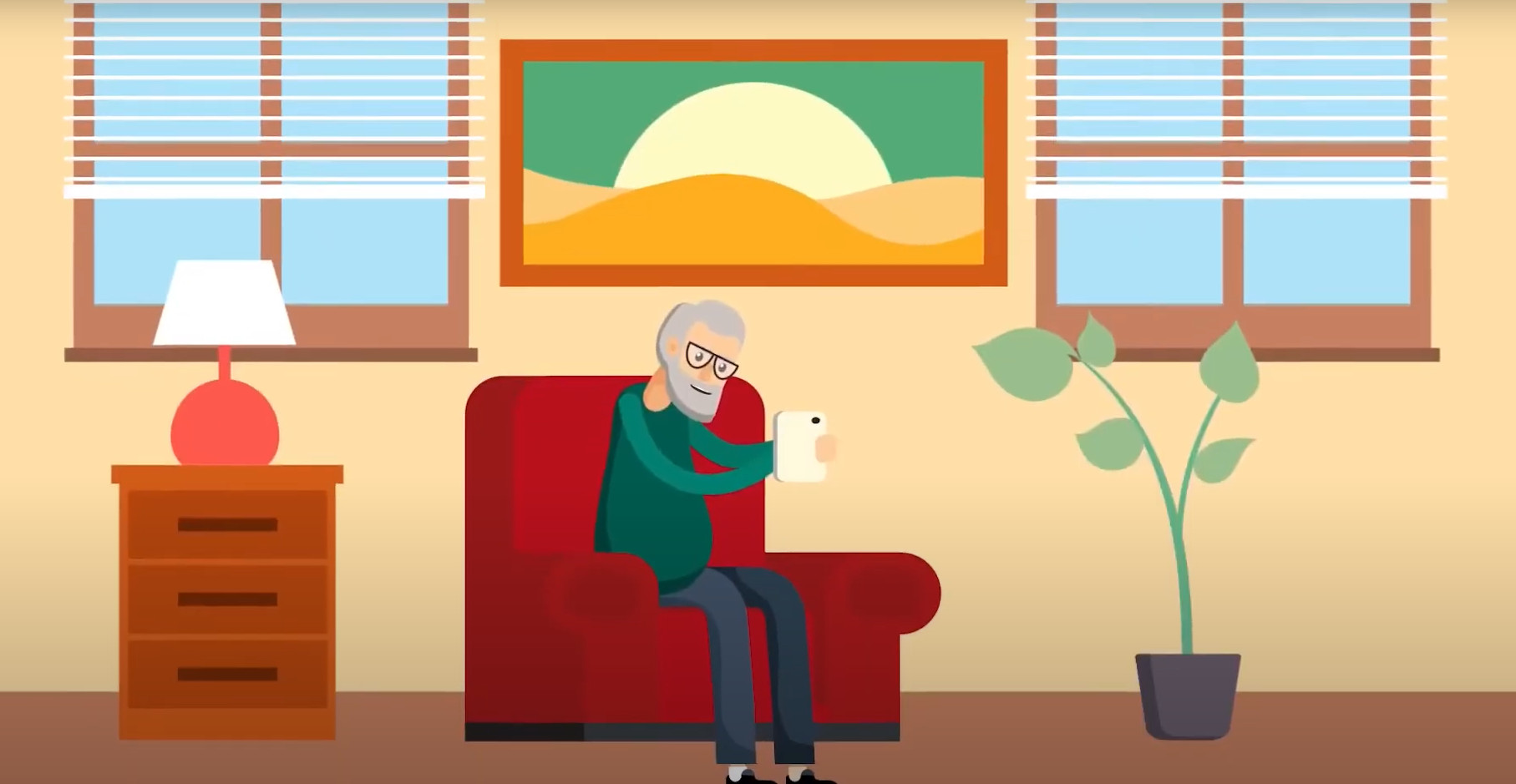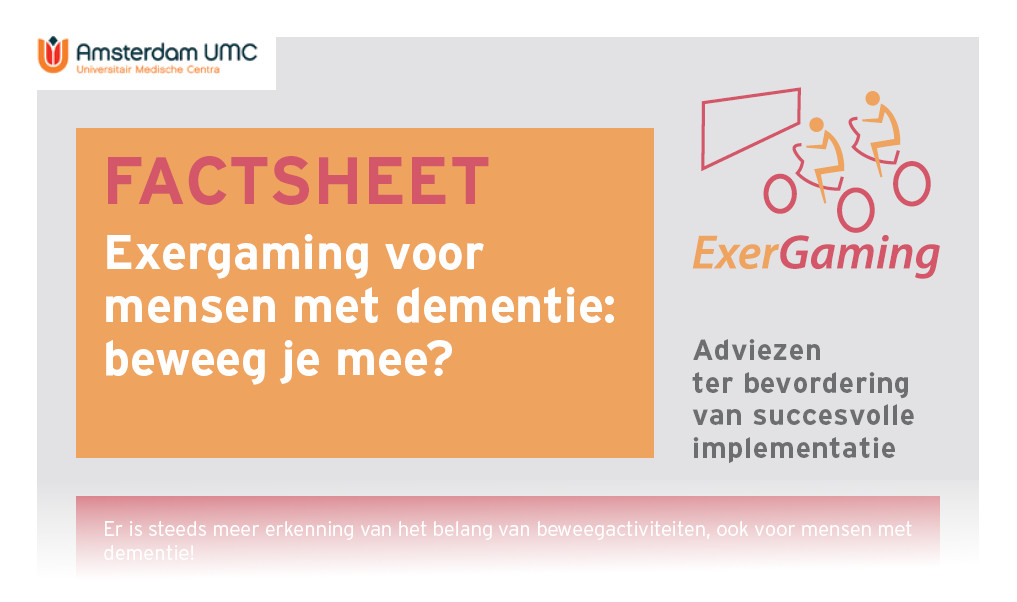Technology in everyday life
Guidance
During the development or use of technological devices, the individual needs of the person with cognitive impairments (e.g. dementia or MCI) and carer should be considered. This includes not only everyday technology, but also surveillance technology (ST) and technology used during cognitive training sessions. Increased awareness and offered assistance is recommended.
Explanation and Examples
People with dementia tend to face more and other difficulties than people with MCI when using relevant everyday technologies such as cash machines, calling or texting with a cell phone or using a DVD player, and thus need more assistance in technology use. This may also be the case with ST and technology used for cognitive training.
For example, ST are often presented as a neutral technology, which enables carers to minimise risk. However, the views of users have not been sought by ST developers, which limits the usefulness of ST and suggests the need for the empowerment of user groups. Therefore, a study of audience reception was undertaken through focus groups, online discussions (Netherlands) and PPI (UK). Hereby people with dementia could speak for themselves, which has allowed their needs to be compared with carers. There was no clear recognition that such needs differed between people with dementia and carers, and it has not previously been recognized that this leads to a mismatch between a user’s situation and the product design and how this plays out in the acceptance and use of ST. Although, carers and people with dementia have not yet reached an agreement on the privacy debate and on how the media should portray dementia, it is clear that carers often tamper with ST to make up for a lack in current designs. The results suggest that ST are being resold or rebranded by providers to use for dementia, whilst users may experience physical and cognitive barriers to using such technologies for safety reasons.
Regarding technology for cognitive training: As older people have little experience with technological devices, and so may experience problems, professionals involved in cognitive training should monitor training sessions from the outset. The professional must observe and ensure the ability of the older person to understand the instructions given through the technological device, so that the person can really benefit from the cognitive training by computer. For example, in sessions with GRADIOR, a cognitive rehabilitation program, there is always a professional in charge who helps older people to understand the exercises they may experience difficulty with.
Read more >
Social Health Domain 3: Technology to promote social participation
Guidance
The choice for a tablet-based intervention should be based on an assessment of the characteristics of the tablet-users and their specific needs and potential to benefit from the intervention. Care providers should consider prioritizing people with MCI and younger people with MCI/mild dementia to receive tablet-based interventions.
Explanation and Examples:
Evidence from the FindMyApps project showed that on average, tablet interventions could be effective to promote participation in social and other meaningful activities. However, the results also showed that tablets seem to be particularly effective for people with a diagnosis of MCI compared to those with a diagnosis of mild dementia. Regardless of the diagnosis, the results also suggest that younger people with MCI/mild dementia also benefit more from tablet-based interventions than older people. The choice for a tablet-based intervention should therefore be based on an assessment of the tablet-user characteristics, in addition to their needs and potential to benefit from it.
Read more >
Technology for meaningful activities
Guidance
People with dementia can have difficulty finding apps for self-management, meaningful activities and social participation that match their needs, interests and abilities. A tool that helps them find such apps is therefore recommended.
Explanation and example
People with dementia often experience unmet needs in their self-management, meaningful activities and social participation. Apps and technological interventions can potentially help them fulfil these needs and also decrease the burden for caregivers.
The last decade many apps have been developed that can support people with dementia in managing daily life, engaging in activities and staying in touch with their social network. However, people with dementia may have difficulty finding apps that match their needs, interests and abilities, FindMyApps is a selection tool that aims to help people find, download and use apps for self-management and meaningful activities, which are dementia-friendly and meet their needs, interests and capabilities.
A randomized controlled exploratory trial into the effectiveness of FindMyApps showed that people with dementia who were offered this tool more frequently downloaded and used apps for self-management and meaningful activities than people who did not have access to this tool. This confirmed the usefulness of the tool. Therefore, a tool such as FindMyApps is recommended for people with dementia and their caregivers to ease the search for suitable apps.
Read more >
Social Health Domain 3: Technology to promote social participation
Guidance
Care providers should consider providing people with mild cognitive impairment (MCI) or mild dementia with the FindMyApps tablet-based intervention, or even a usual tablet without FindMyApps if accompanied with appropriate training, as an effective way of improving their social participation.
Explanation and Examples:
Evidence from the FindMyApps project has identified increases in social participation associated with use of the tablet-based FindMyApps intervention or a usual tablet without FindMyApps, when accompanied by appropriate training. The improvements were slightly more pronounced with the FindMyApps intervention than with a tablet without FindMyApps, particularly with respect to the diversity of social activities in which people participated (as opposed to the overall frequency of social activities). Evidence was also found for people with MCI/mild dementia experiencing apathy prior to receiving the interventions having better quality of life outcomes when they received FindMyApps. All improvements found were small.
Caregivers’ sense of competence refers to how well caregivers feel they can provide care for their family member with dementia or friend, and for how long. Evidence from the FindMyApps project has identified that the FindMyApps intervention is associated with a greater sense of competence for caregivers (moderate effect size) of community-dwelling people with MCI/mild dementia than a normal tablet and should therefore be implemented by preference to a normal tablet.
Read more >
Technology for meaningful activities
Guidance
Exergaming in day care centres can be implemented more successfully by making more than one employee responsible for it.
Explanation and examples
We have asked day-care centres for people living with dementia, which factors were important for successful implementation of Exergaming. Sometimes, only one person in the day-care centre was responsible for the Exergaming activity. If this person was not at the day-care centre, because he/she was ill or left for another job, the Exergaming activity often was forgotten.
Read more >
Guidance
Employees of care organisations should be supported by the management in their responsibility for Exergaming as a new activity. Managers should be actively engaged in Exergaming and be kept updated on any developments with regard to Exergaming (i.e. positive experiences of people with dementia practising Exergaming, any potential issues with the activity).
Explanation and examples
We have asked day-care centres for people living with dementia, which factors played a role in successful implementation of Exergaming. The staff of these day-care centres sometimes did not feel supported by the management in supervising and implementing the Exergaming activity. This made it less likely for them to implement it.
Read more >
Social Health Domain 1: Fulfill ones potential and obligations
Guidance
Health and social care professionals working with people with Young Onset Dementia should clearly signpost to online peer support services, to help people find the support they need.
Explanation and Examples
Peer support can be highly beneficial for people with Young Onset Dementia and make the post-diagnostic period more positive. It can contribute to different aspects of social health: their ability to fulfill one’s potential and obligations, management of their own life and participation in social activities. People can share experiences, information, and coping skills in these areas. This goes beyond support that health and social care professionals, or friends and family can give. Given these benefits, peer support should be accessible to every person living with Young Onset Dementia. However, access to specialised (support) services varies widely across the UK. Therefore, online peer support could offer a solution.
Our research showed that people with Young Onset Dementia experienced a severe lack of support and signposting to (peer) support services. Benefits of having peer support online included not having to travel, not having the sensory overload of being in a room full of people, and finding it comfortable to join from their own home. Having their support group gave many of them hope again, and some called it their lifeline. Our online survey showed that the main reason why people did not use online peer support was that they did not know it existed, or they did not know where to look for support. Some of those who did not have experience with online peer support would be interested if they knew where to find it. This indicates a need for professionals to clearly signpost to (online) peer support services and information.
Read more >
Social Health Domain 2: Manage ones own life and promote independence
Guidance
See recommendation no. 3.3.4.1
Read more >
Guidance
Social media have the potential to be an additional supportive medium for people with dementia. It is recommended to signpost individuals with dementia to social media platforms to leverage their potential.
Explanation and Examples:
We conducted an online survey with 143 people with dementia to explore how they used social media platforms and what kind of information they shared on their accounts. Our findings show that people with dementia use various different social media platforms like Facebook or Twitter to raise awareness, give and receive support, and to share their experiences of living with dementia. As subsequent older generations will use technology more and, consequently, will become more tech-savvy, social media platforms will become more relevant for this population. As post-diagnostic support is often lacking, social media platforms can be used as medium that is widely available and easily accessible to offer people with dementia additional (peer) support. Examples of these platforms include online forums like Talking Point by the Alzheimer’s Society UK, Facebook groups run by charities or dementia organisations, or Twitter where many people with dementia are active. Signposting people with dementia to these social media platforms is therefore recommended.
Read more >
Social Health Domain 3: Technology to promote social participation
Guidance
See recommendation no. 3.3.4.1
Read more >
Guidance
There are many considerations when planning to implement technological interventions. The issues can be grouped into context, implementation and mechanism of impact factors. Evidence from the FindMyApps project has identified, within these categories, specific factors that are important for successful implementation of a tablet-based intervention, such as FindMyApps. Potential tablet-users and care providers are advised to base their decisions on this evidence.
Explanation/examples:
The FindMyApps project compared the FindMyApps intervention to usual tablet use by community-dwelling people with mild cognitive impairment (MCI) or mild dementia. The following factors were identified as influencing the success of implementation of both the FindMyApps intervention and a standard tablet:
- Context:
- People with MCI/mild dementia who previously used a tablet are more likely to use the intervention. Intensive one-on-one support is recommended to those who have never used a tablet.
- People with MCI and younger people with MCI/mild dementia may use the intervention more. Extra support is recommended for older people with dementia.
- People experiencing apathy may benefit more from dementia-specific tablet programmes, such as FindMyApps, which provide easy access to selected apps, than from a standard tablet.
- Implementation:
- People with slower Wi-Fi connections may find the tablet harder to use.
- It is often feasible to provide support by telephone and/or video-call but face-to-face contact is more suitable for those who have never used a tablet before.
- Few people use passive support, such as a telephone helpdesk. It is therefore recommended to pro-actively offer support to those who may need it (see above).
- Mechanisms of impact:
- Tablet-use may support social contact and engagement in meaningful activities, more than instrumental activities of daily living. It is recommended to set personal goals accordingly.
- Limitations of specific tablet-apps (e.g. pop-up advertising, requirements for user-accounts with passwords) should be considered.
- The quality of tablet-use, seems more important for social health than the quantity (frequency of duration) of tablet use. Set personal goals and evaluate accordingly.
Read more >
Guidance
See recommendation no. 3.3.5.5
Read more >




